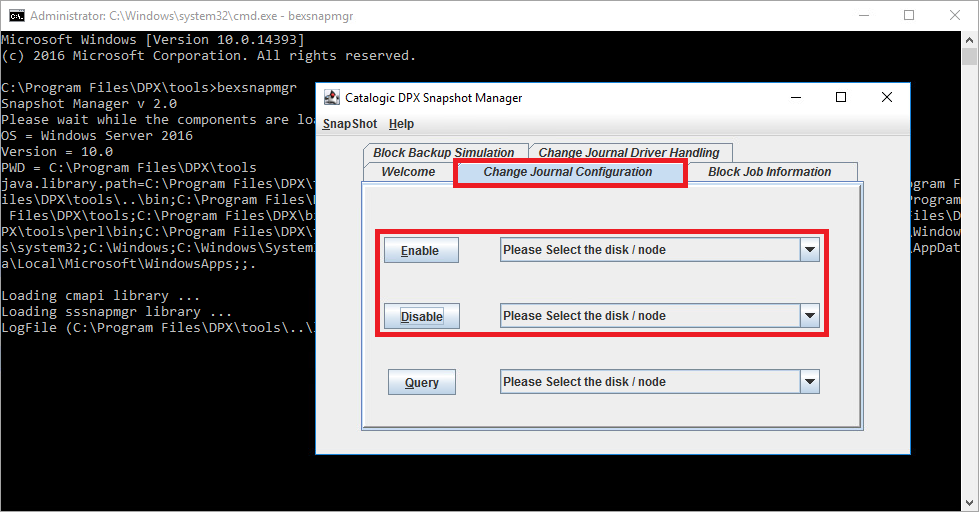Forcing a Base Backup
General Considerations
The first time you run a backup job, it will be a base backup. Subsequent runs are automatically incremental, and only changed blocks are backed up. A change journal on the client node tracks block-level changes.
In rare cases, such as disruption caused by a sudden power failure or virus, the change journal may stop or become inconsistent. The change journal then does not precisely track changed blocks. A repeatable backup failure may be evidence of damage to the change journal.
To recover from damage to a change journal, a base backup is required. That is, you must force a base backup. This forced base is sometimes referred to as a re-base.
A forced base is usually done in communication with a support analyst. However, it can be done by knowledgeable users. A base backup is forced in the following ways:
Running the job with a new job name
This method does not permit the selection of backup sources within the backup job. It forces a base backup of every source defined in the job. This method is practical only for jobs that are not backing up multiple sources that contain large amounts of data.
Running the bexsnapmgr utility
This is the preferred method and is described below. It enables the selection of backup sources requiring a base backup. The utility clears change journaling for the selected source. This forces a base backup of that source the next time the backup job is run. Note that this method is supported only for Windows clients. For other clients, contact Catalogic Software Data Protection Technical Support.
Take the following steps to force a base backup with bexsnapmgr:
Examine the job log to identify sources that failed to be backed up.
On the Windows client where the backup of a source failed, launch the DPX command prompt from the Windows Start menu:
For Windows earlier than 2008, click Start > All Programs > DPX > DPX Command Prompt.
For Windows 2008 and later, click Start > All Programs > DPX. Then right-click DPX Command Prompt. From the context menu, select Run as Administrator.
The DPX command prompt appears.
Enter
bexsnapmgr. The user interface appears.

Click Change Journal Configuration. The Change Journal Configuration window appears.
Next to Disable, select from the pull-down list the affected backup source (node, drive, or volume). Click Disable. A message indicates that the source is disabled. At this point, you cannot run a backup of the disabled source. Repeat this step if there are additional sources to disable.
Next to Enable, select from the pull-down list the same backup source disabled in the previous step. Click Enable. At this point, you can run a backup of the source. Repeat this step for any additional sources disabled in the previous step.
Close the user interface.
Change journaling for the selected backup source or multiple sources, is now cleared. The next time a backup job using the source runs, the backup of the source is a base backup. Backups of all other sources defined in the job continue to run as incrementals.
Attention! Do not use other functions of the utility except under the direction of Catalogic Software Data Protection Technical Support.
Disabling the change journal requires correct permissions. If attempting to disable the change journal displays an error, read the knowledge base article 46171.